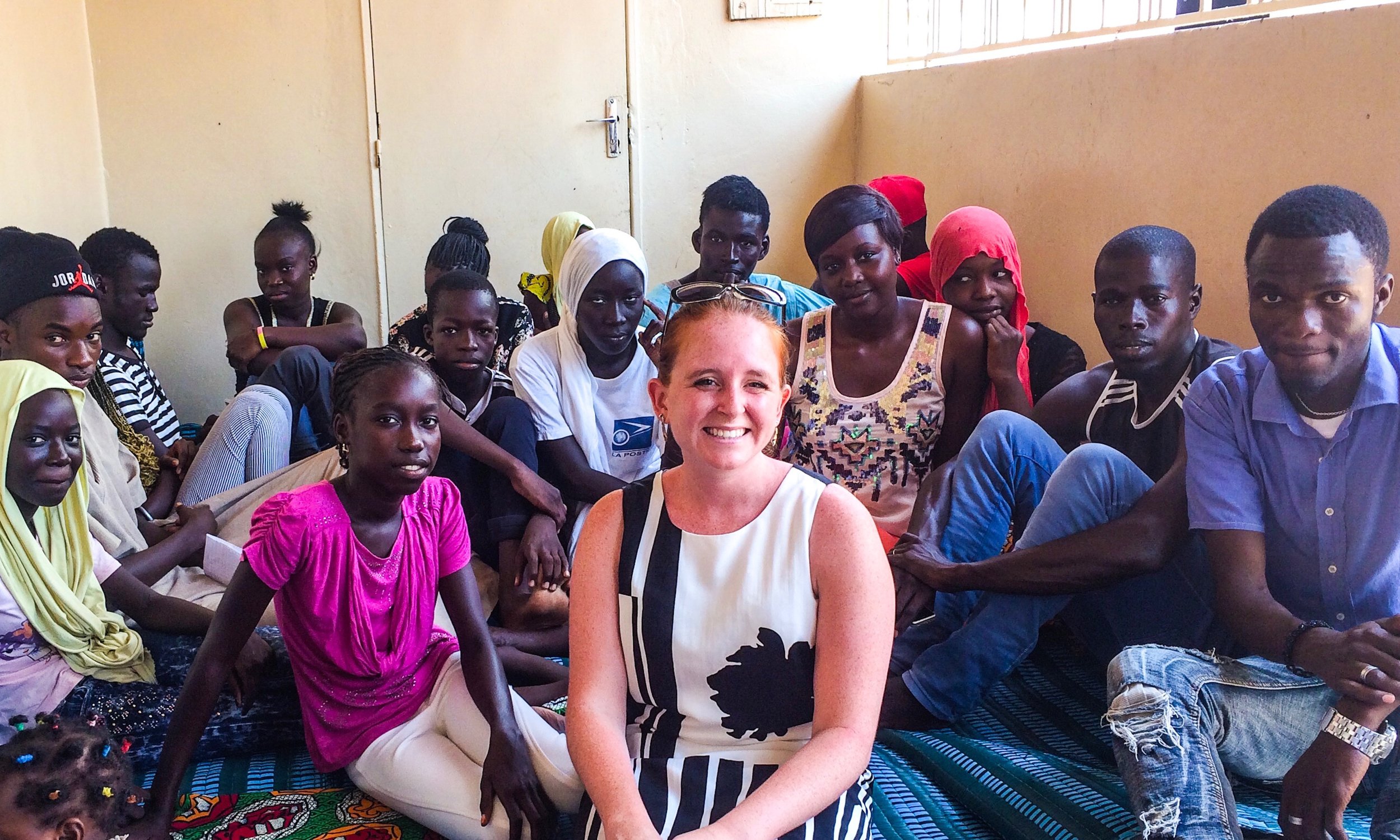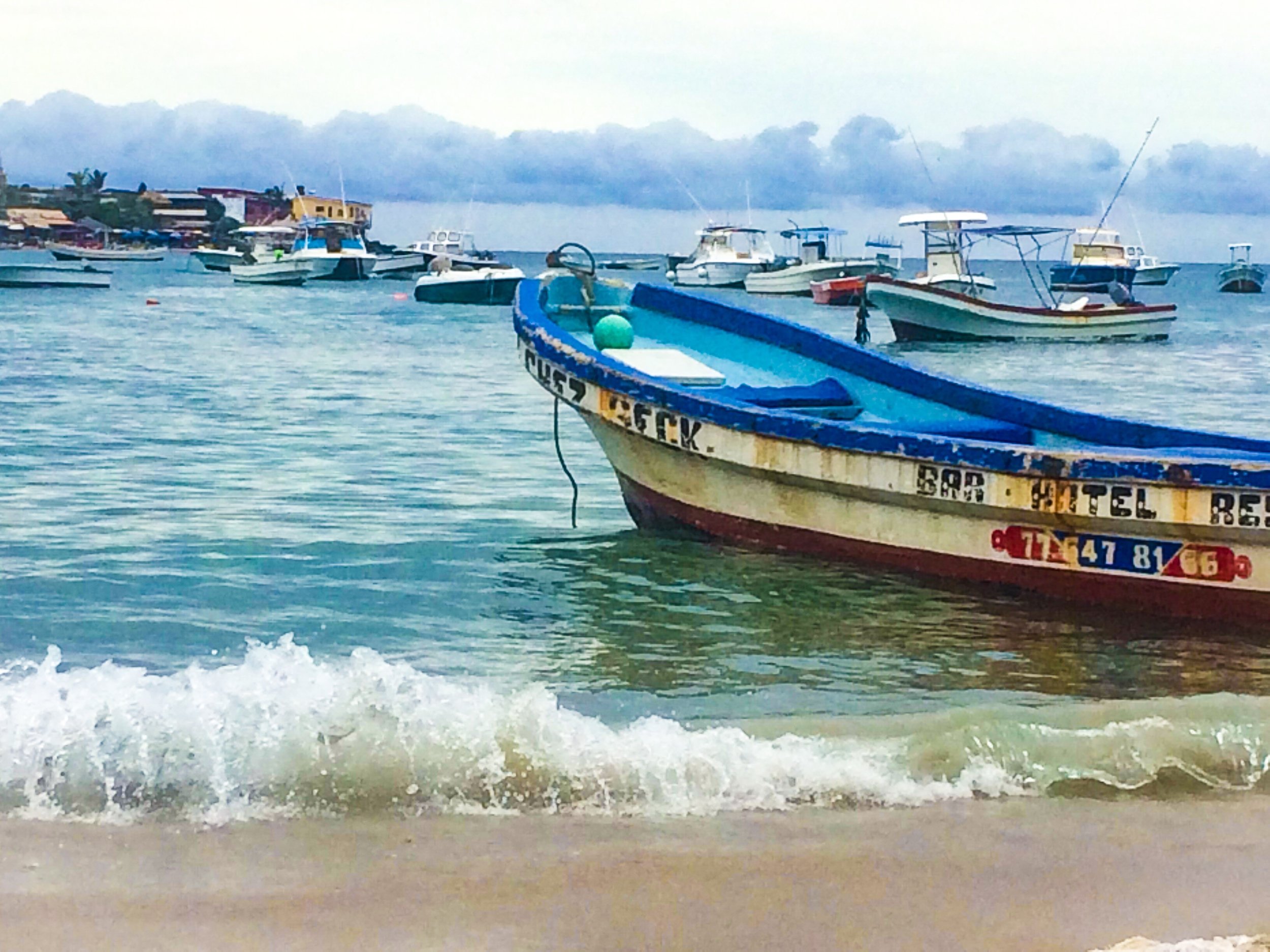BY EMILY SCHAUB
Emily Schaub is a second-year student in the International Development program. She spent her summer internship with UN Women, a United Nations entity working for the empowerment of women, in Dakar, Senegal.
The IDEV Summer Internship Series highlights the experiences of IDEV students participating in internships this past summer. Each year, IDEV students intern with various development organizations around the world. These internships are generously funded by SAIS donors, and offer valuable opportunities for students to gain real-world experience between their first and second years at SAIS. Emily's internship with UN Women was sponsored by Hope Simon Miller.
From day one, when my new supervisor greeted me with, “You’re the youth expert, right?” and continued to introduce me as such, I suddenly became the point person for any and all issues concerning young people. This led me to several very different research projects, as UN Women has spent the past several years building a strategy for the engagement and representation of youth in all of its work. I wrote background guides for agricultural projects targeting young women in Chad and Guinea, supported the early stages of developing an ICT program, and wrote a report on the possibility of achieving a youth dividend in the region.
The first half of the summer was devoted almost exclusively to desk research, which, despite the variability of my assignments, was sometimes tedious, so I jumped at the chance, when the opportunity arose, to visit and evaluate a project on gender-responsive planning and participatory budgeting in northwestern Senegal. The Regional Office was interested in the project’s impact on youth involvement in local governance in that region, and a series of interviews with local district councils, youth associations, and partner organizations was scheduled.
The project supports local governmental and decision-making bodies to include women in their budgeting and planning processes, and provides training on making those processes gender-sensitive. In the six years since its implementation in Senegal’s Louga region, the representation of women in district councils has increased, elected women have been provided with leadership training, maternity clinics have been built and obstetricians provided with housing onsite or nearby, and schools have been outfitted with menstrual-hygiene facilities. The integration of women and their concerns into local budgeting is extensive and obvious. My job was to determine whether that integration extends to young people.
In short, it doesn’t--at least, not to the same extent. In spite of legislation that requires district councils to consult youth associations when making decisions, and reserves several political roles for young people, discussions with youth associations revealed that, in practice, young men and women do not engage in politics. As a rule, young people in Senegal, as in much of the world, do not trust their leaders and are largely disenchanted with the process of democratic decision-making. They expressed the feeling that, even if they did attend council meetings and voiced their particular concerns, the impact on political decisions would be negligible. A critical breakdown of communication channels also prevents young people in Louga from taking advantage of the opportunities created for them; several were wholly unaware of their legal right to attend and participate in council meetings. One didn’t know that a district council even existed. Meanwhile, the leaders and civil society organizations have essentially washed their hands of responsibility. The director of one such group felt the ball was in the young people’s court; having created a space for youth decision-making, he believed his job was done, and it was now up to the intended beneficiaries to fill that space. One district council leader merely shrugged and said inclusion of women and young people wasn’t his priority.
The five-day research evaluation was somewhat disheartening, but an opportunity to witness the pressing and complex challenge of translating ideas and legislation into practical results. Interviews highlighted specific barriers to that transformation and betrayed the lack of political will to make vulnerable populations part of the decision-making process. On the other hand, though the project has largely failed to support young people, a great deal of meaningful impact has been achieved in the field of gender-responsive planning. This suggests that the capacity to incite change exists, and with a shift of focus to more directly target youth, they too could benefit from the project.
PHOTO CREDIT: "Portraits of children from Africa" by USAID, from Pixnio.com licensed under CC BY 2.0.
Below, scenes from the author's summer in Senegal.




